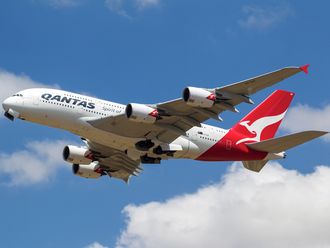Geneva: European countries are increasingly pegging speeding fines to income as a way to punish wealthy scofflaws who would otherwise ignore tickets.
Advocates say a $290,000 (Dh1.06 million) speeding ticket slapped on a millionaire Ferrari driver in Switzerland was a fair and well-deserved example of the trend.
Germany, France, Austria and the Nordic countries also issue punishments based on a person's wealth. In Germany the maximum fine can be as much as $16 million compared to only $1 million in Switzerland. Only Finland regularly hands out similarly hefty fines to speeding drivers, with the current record believed to be a $170,000 (then about $190,000) ticket in 2004.
The Swiss court appeared to set a world record when it levied the fine in November on a man identified in the Swiss media only as "Roland S." Judges in the eastern canton of St. Gallen described him as a "traffic thug" in their verdict, which only recently came to light.
"As far as we're concerned this is very good," said Sabine Jurisch, a road safety campaigner with the Swiss group Road Cross.
She said rich drivers were lightly punished until Swiss voters approved a 2007 penal law overhaul that let judges hand down fines based on personal income and wealth for moderate misdemeanours including excessive speeding and drunk driving.
Before, they had to assign relatively small fixed penalties or — rarely — a few days in prison. The fines were traditionally insignificant for rich people, and in the rare cases where prison terms for small-time offenders were handed down, they were usually suspended anyway. And even when they were sent to jail, the deterrent was limited compared with the costs of incarceration borne by the taxpayers, officials said.
"It wasn't about making the punishment harsher or lighter, but more sensible," Heinz Sutter, an official at the Swiss Justice Ministry, said.
In the latest case, the court took into account the man's history of similar offences, his high speed and his estimated personal wealth.












